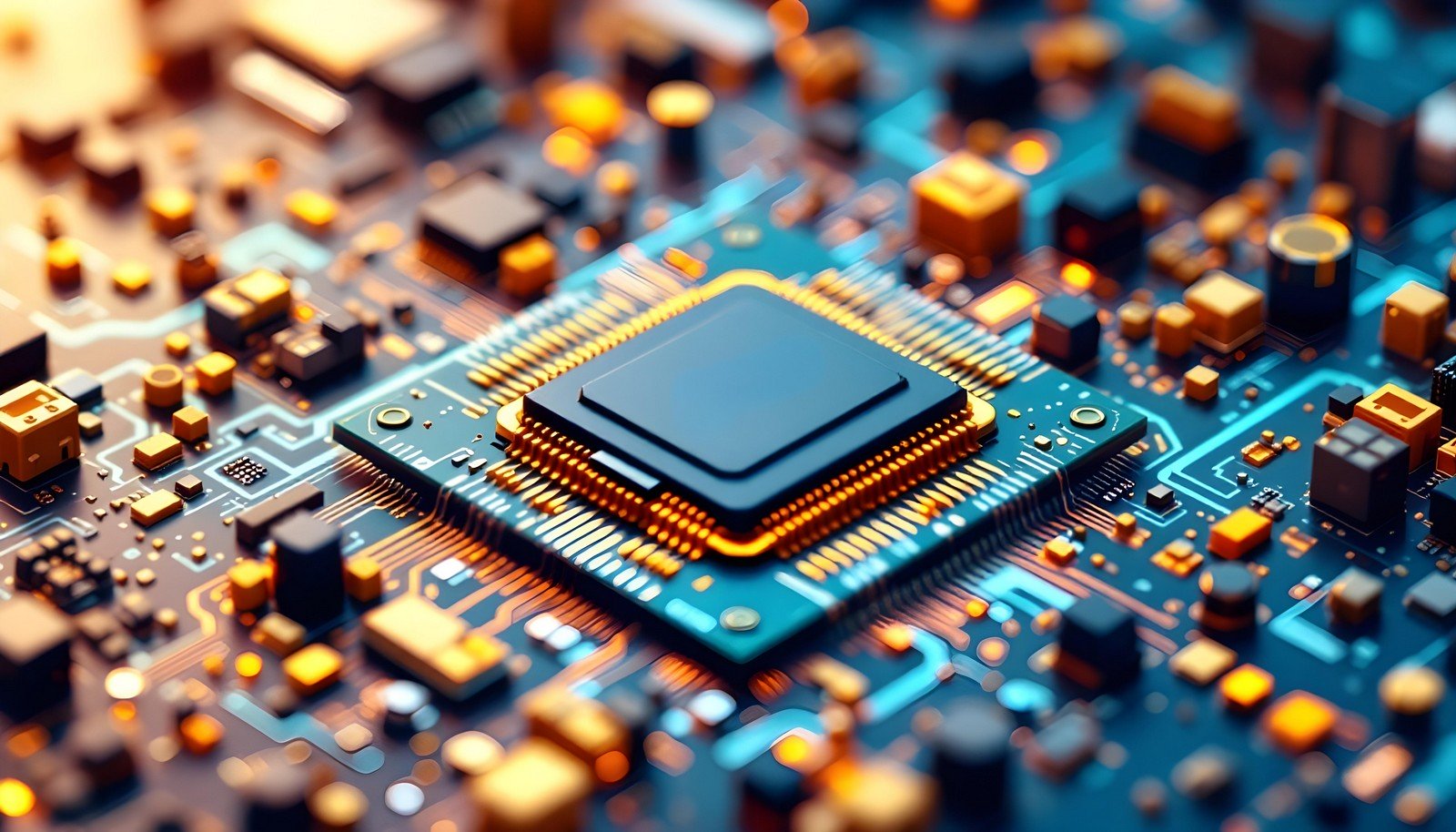Computer Processor (CPU)

Quick Navigation:
- Computer Processor (CPU) Definition
- Computer Processor (CPU) Explained Easy
- Computer Processor (CPU) Origin
- Computer Processor (CPU) Etymology
- Computer Processor (CPU) Usage Trends
- Computer Processor (CPU) Usage
- Computer Processor (CPU) Examples in Context
- Computer Processor (CPU) FAQ
- Computer Processor (CPU) Related Words
Computer Processor (CPU) Definition
A computer processor, or central processing unit (CPU), is the primary component of a computer that executes instructions from programs and manages all processing tasks. It is often referred to as the "brain" of the computer, as it handles calculations, logic, input/output operations, and control signals. Modern CPUs are made of billions of microscopic transistors and operate at high speeds measured in gigahertz (GHz). CPUs come in various architectures, including x86 and ARM, and are vital for running operating systems and applications efficiently.
Computer Processor (CPU) Explained Easy
Think of a CPU like a super-smart robot that does all the thinking for your computer. Whenever you click something or type a letter, the CPU figures out what needs to happen and makes it work. It’s like a control center that tells all the parts of your computer what to do.
Computer Processor (CPU) Origin
The first commercial CPU, the Intel 4004, was introduced in 1971. It marked a revolution in computing, enabling the development of smaller, more powerful computers. Since then, CPUs have evolved with innovations like multi-core processors and advanced manufacturing techniques.
Computer Processor (CPU) Etymology
The term "processor" is derived from "process," meaning to carry out operations. "Central" emphasizes its role as the main unit controlling computer functions.
Computer Processor (CPU) Usage Trends
CPUs have seen rapid advancements over the years, with trends focusing on increasing core counts, enhancing energy efficiency, and boosting clock speeds. The emergence of applications like AI, gaming, and cloud computing has driven the demand for powerful processors. Technologies like quantum computing are expected to redefine the role of processors in the future.
Computer Processor (CPU) Usage
- Formal/Technical Tagging:
- Microprocessors
- Computing Hardware
- Instruction Processing - Typical Collocations:
- "multi-core CPU"
- "CPU clock speed"
- "processor architecture"
- "CPU-intensive tasks"
Computer Processor (CPU) Examples in Context
- High-end gaming PCs require powerful CPUs to ensure smooth performance.
- Mobile devices use ARM-based processors for better energy efficiency.
- Servers running data centers rely on CPUs with high core counts to handle massive workloads.
Computer Processor (CPU) FAQ
- What is a CPU?
A CPU is the primary component of a computer that performs calculations and executes instructions. - How does a CPU work?
It processes instructions using its control unit and arithmetic logic unit to execute tasks. - What are cores in a CPU?
Cores are individual processing units within a CPU, allowing it to perform multiple tasks simultaneously. - What is hyper-threading?
A technology that allows a single CPU core to handle multiple threads for better multitasking. - What is the difference between a CPU and a GPU?
A CPU handles general-purpose tasks, while a GPU is optimized for parallel processing, such as graphics rendering. - What affects CPU speed?
Clock speed, number of cores, and cache size influence CPU performance. - What is overclocking?
Increasing a CPU’s clock speed beyond its default setting for better performance. - How do CPUs differ between laptops and desktops?
Laptop CPUs are designed for energy efficiency, while desktop CPUs prioritize performance. - What is an integrated CPU?
A CPU that includes additional components, like a GPU, on the same chip. - Can a computer run without a CPU?
No, the CPU is essential for processing and executing instructions.
Computer Processor (CPU) Related Words
- Categories/Topics:
- Microarchitecture
- Semiconductor Technology
- Computing Performance
Did you know?
The Intel 4004, the world’s first CPU, could perform 92,000 instructions per second. Today’s CPUs can process billions of instructions in the same amount of time, showcasing remarkable technological progress.
PicDictionary.com is an online dictionary in pictures. If you have questions or suggestions, please reach out to us on WhatsApp or Twitter.Authors | Arjun Vishnu | @ArjunAndVishnu

I am Vishnu. I like AI, Linux, Single Board Computers, and Cloud Computing. I create the web & video content, and I also write for popular websites.
My younger brother, Arjun handles image & video editing. Together, we run a YouTube Channel that's focused on reviewing gadgets and explaining technology.



Comments powered by CComment